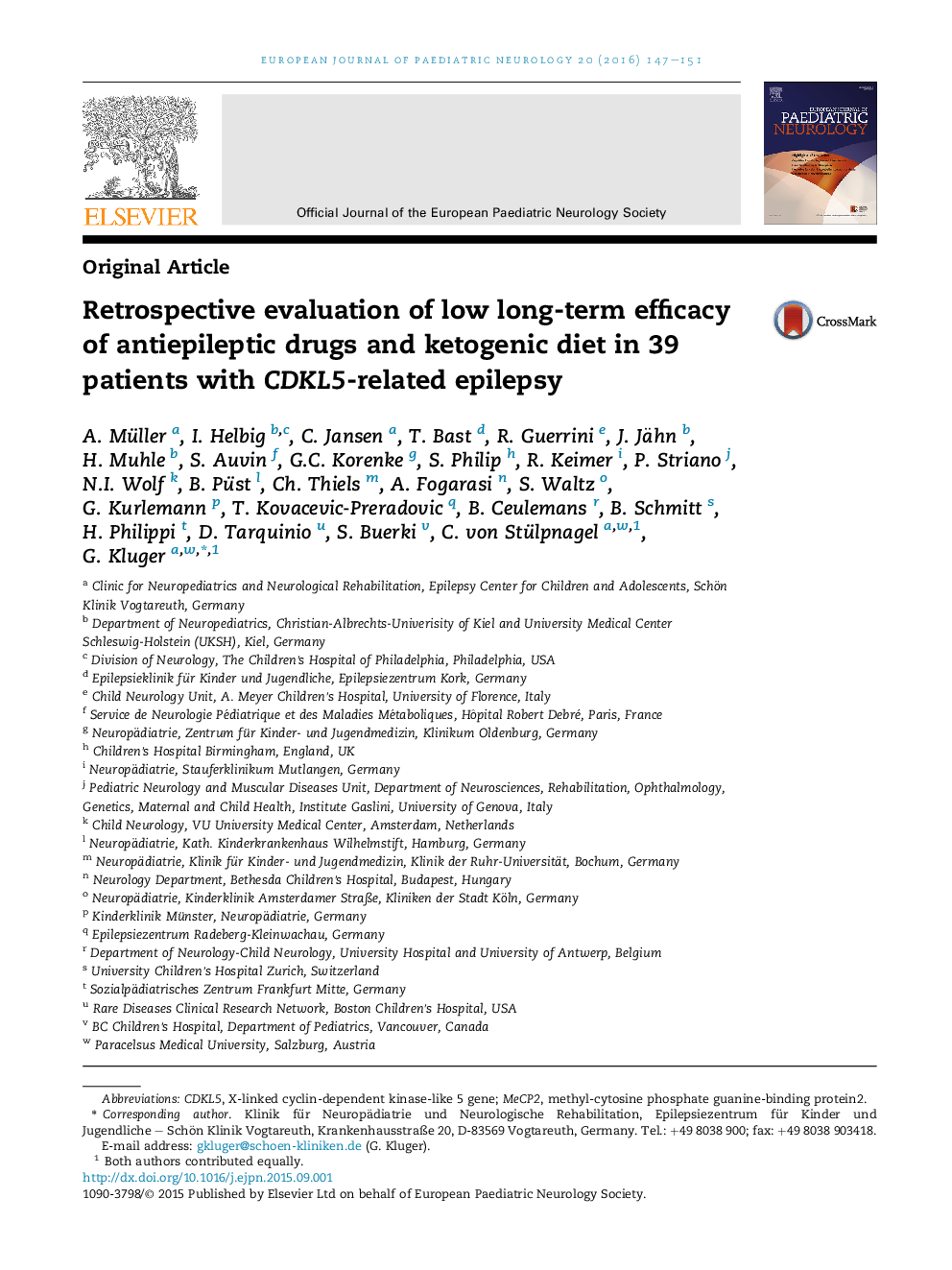| کد مقاله | کد نشریه | سال انتشار | مقاله انگلیسی | نسخه تمام متن |
|---|---|---|---|---|
| 3053669 | 1580009 | 2016 | 5 صفحه PDF | دانلود رایگان |
• So far little knowledge about effective antiepileptic treatment in CDKL5 patients.
• Retrospective study in 39 CDKL5 patients: effect of AEDs/ketogenic diet (KD).
• Responder rate to one AED or KD: 69% (3 months), 45% (6 months); 24% (12 months).
• Twelve patients (31%) experienced a seizure aggravation to at least one AED.
• Our data may help defining realistic treatment goals and avoiding overtreatment.
ObjectiveMutations in the CDKL5 gene cause an early-onset epileptic encephalopathy. To date, little is known about effective antiepileptic treatment in this disorder.MethodAccordingly, the aim of this retrospective study was to explore the role of different antiepileptic drugs (AEDs) and the ketogenic diet (KD) in the treatment of this rare genetic disorder. We evaluated the efficacy in 39 patients with CDKL5 mutations at 3, 6 and 12 months after the introduction of each treatment. One patient was lost to follow-up after 6 and 12 months.ResultsThe responder rate (>50% reduction in seizure frequency) to at least one AED or KD was 69% (27/39) after 3 months, 45% (17/38) after 6 months and 24% (9/38) after 12 months. The highest rate of seizure reduction after 3 months was reported for FBM (3/3), VGB (8/25), CLB (4/17), VPA (7/34), steroids (5/26), LTG (5/23) and ZNS (2/11). Twelve patients (31%) experienced a seizure aggravation to at least one AED. Most patients showed some but only initial response to various AEDs with different modes of actions.SignificanceConsidering both age-related and spontaneous fluctuation in seizure frequency and the unknown impact of many AEDs or KD on cognition, our data may help defining realistic treatment goals and avoiding overtreatment in patients with CDKL5 mutations. There is a strong need to develop new treatment strategies for patients with this rare mutation.
Journal: European Journal of Paediatric Neurology - Volume 20, Issue 1, January 2016, Pages 147–151
